2020 has been a year for the history books, and state legislative successes are no exception. Democrats quickly took action in the face of an unprecedented global pandemic, rushed to help those experiencing economic turmoil, and acted on the demands of tens of thousands in the streets who chanted “Black Lives Matter.” Here are some of the top victories of 2020.
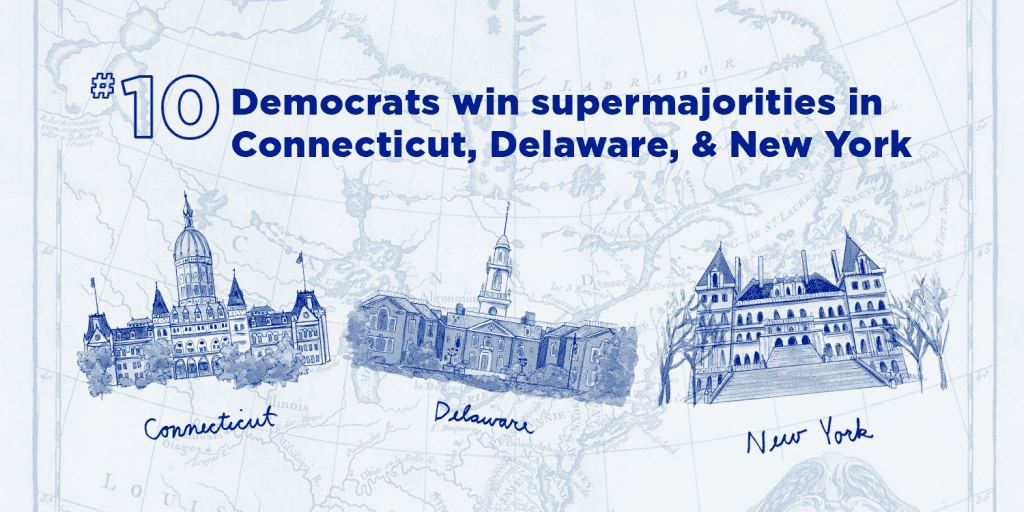
Democrats continued to strengthen their hold over the Northeast by winning veto-proof control in three states that have championed progressive priorities. We flipped two seats red to blue in the Delaware Senate, securing a supermajority in both chambers of the General Assembly. In Connecticut, Democrats won two more Senate seats — establishing a supermajority — and gained at least five seats in the House, leaving them just four seats short of creating another supermajority. And in New York, Democrats established a supermajority by flipping three seats in the Senate, a chamber that was controlled by Republicans until 2018. This kind of size in a Democratic caucus creates a greater diversity of ideas, allowing blue states to truly act as a testing ground for more liberal policies.

2020’s Democratic National Convention was like no other due to the coronavirus pandemic. Instead of crowding into a massive event space, Democrats from all over the country spoke directly to folks in their living rooms — and the results were inspiring. Viewers were introduced to up and comerslike Rep. Malcolm Kenyatta of Pennsylvania, Rep. Sam Park of Georgia, and Rep. Mari Manoogian of Michigan. And who could forget Rep. Joseph McNamara, who gave us one of the most memorable roll call addresses of the year, referring to Rhode Island as the “Calamari Comeback State.” Americans saw that in our statehouses, we have dedicated, diverse young leaders who are fighting for their communities and working to make this country a better place.

Mitch McConnell and his Senate Republicans long refused to help Americans struggling financially through the pandemic, so Democratic state legislatures stepped in to fill the void, scraping together whatever pennies they could to support small business owners and folks out of work. In Nevada, Democrats extended unemployment benefits to people who were forced to go from full-time to part-time work. Democrats in Colorado developed a plan that directs millions in funding to local nonprofits that are on the ground and know where the money is desperately needed most, especially in undocumented communities. And in New Mexico, Democrats provided over $300 million to folks who lost work and small business owners. Unfortunately in states under Republican control, generous relief packages proposed by Democrats were met with staunch resistance.
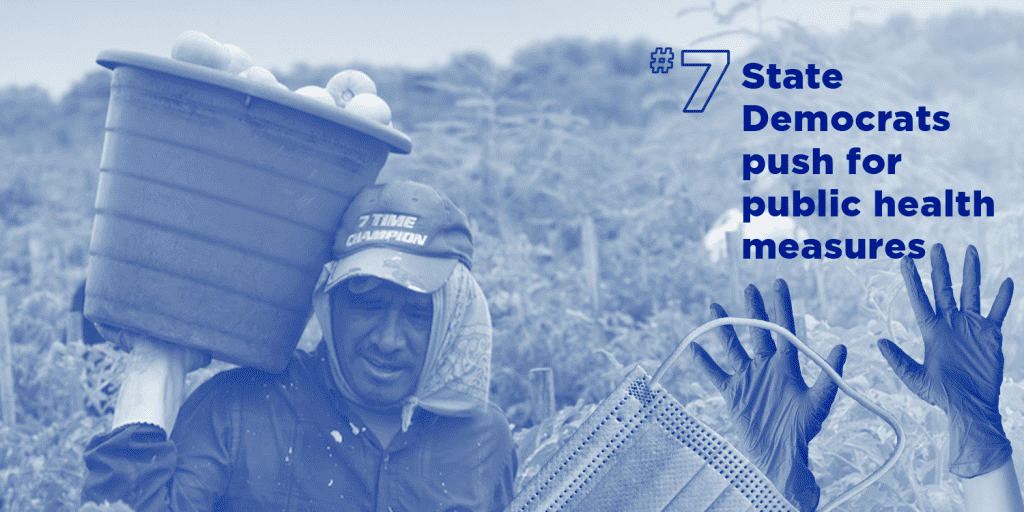
Since the beginning of the pandemic, Democrats have embraced the recommendations issued by scientists, medical experts, and public health professionals. In California, Democrats equipped essential workers, like farmworkers, with information on paid sick leave and workers compensation, so they can keep themselves and their coworkers safe. Maryland Democrats are pushing legislation to ensure essential workers have personal protective equipment, paid health and bereavement leave, and hazard pay. Meanwhile, Democrats in GOP-controlled states have been begging leadership to do the bare minimum and enact mask requirements inside government buildings. Public health measures aren’t an assault on our freedom or causing damage to the economy — the virus is.
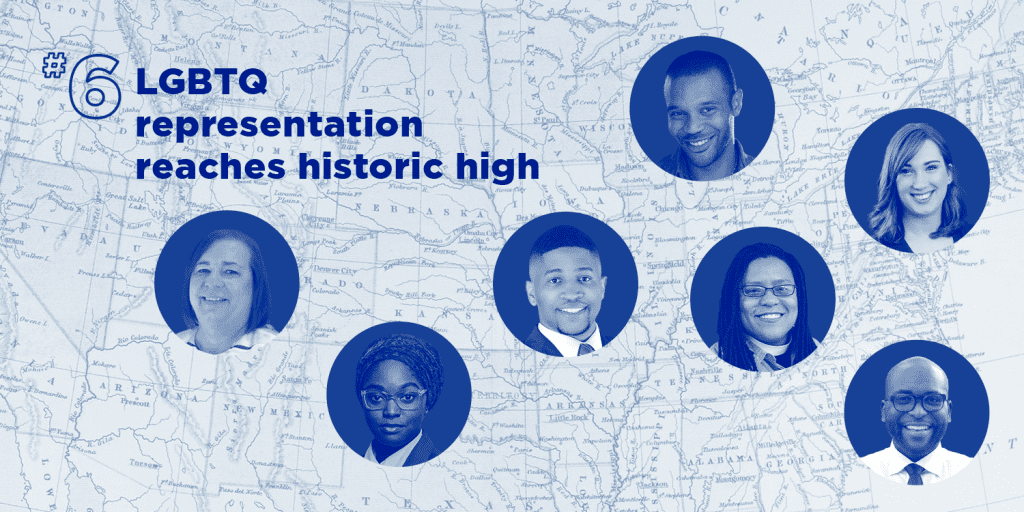
LGBTQ representation in statehouses reached historic highs in 2020, with over 150 Democratic legislators serving openly across the country. There were also 19 LGBTQ Democrats serving in legislative leadership positions, the most in history. Following the 2020 election, 47 states will now have legislators who identify as LGBTQ+, including Delaware Senator-elect Sarah McBride, the first transgender state senator in the country. Alongside strides in representation, state Democrats have also led the push for passing equality legislation. After flipping the General Assembly blue in 2019, Democrats made Virginia the first state in the South to ban conversion therapy for minors and establish anti-discrimination protections for LGBTQ folks.
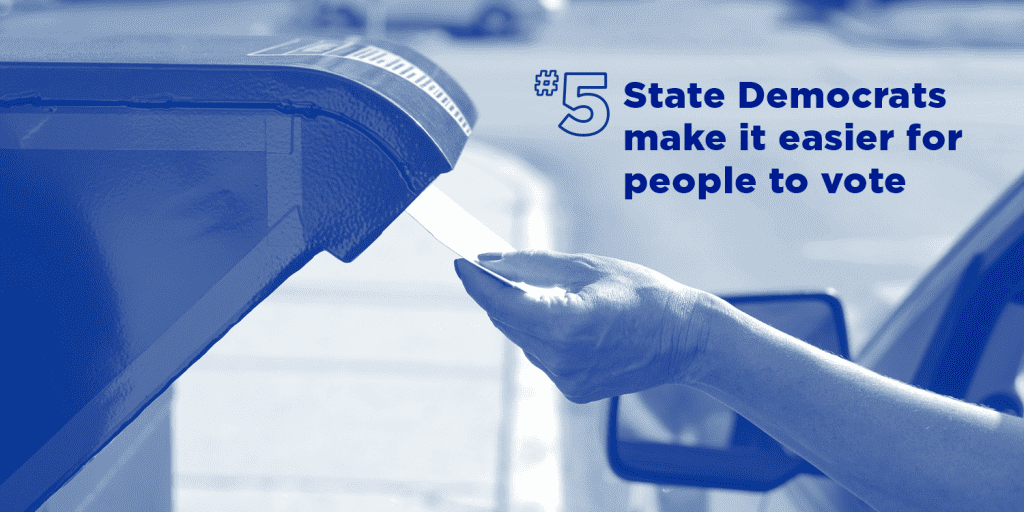
The pandemic introduced a whole new set of challenges when it came to the 2020 election, but Democratic state legislatures stepped up to make it safer and easier to vote than ever before. Illinois, Rhode Island, Massachusetts, and Delaware mailed every single voter an absentee ballot application, and millions took advantage. Nevada and Vermont took it one step further, mailing ballots to all registered voters for the first time. But even before we knew about coronavirus, the new blue Virginia legislature made it easier for people to vote. They repealed photo ID laws, instituted automatic and same-day registration, made Election Day a state holiday, and allowed for no-excuse absentee voting — extending the early voting period to all Virginians. Because fair and equal access to the ballot box is the core pillar of our democracy.

After years of Republican obstruction, the Virginia General Assembly opened the 2020 session under full Democratic control for the first time since 1995. Gun reform was the number one concern of voters, and Democrats delivered, passing universal background checks and a red flag law, keeping guns out of the hands of domestic abusers, letting localities pass stricter gun safety legislation, and reinstating one-gun-per-month purchase limits. Democrats passed the Clean Economy Act, paving the way for 100% renewable energy by expanding solar power, offshore wind generation, and energy storage. They repealed medically unnecessary anti-abortion laws, passed bills to combat workplace harassment, and became the 38th and final state needed to ratify the Equal Rights Amendment. They also raised the minimum wage to $12 an hour, the first increase in over a decade. It’s fair to say that Virginia is now for lovers of progress.
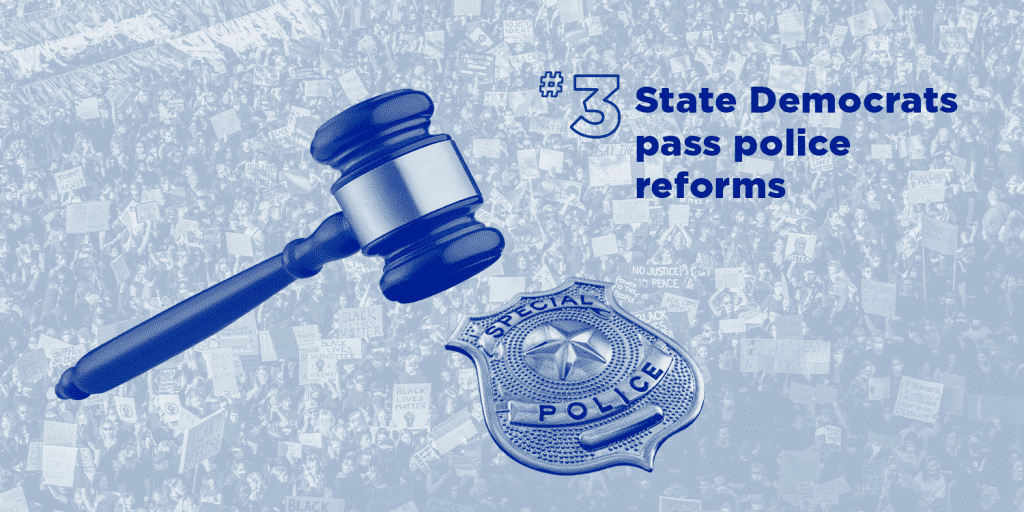
In the wake of George Floyd’s and Breonna Taylor’s murders, Democratic state legislatures throughout the country listened to the needs of their constituents and enacted meaningful legislation to reform policing, including banning chokeholds and no-knock warrants. New York was one of the first states to take action, passing a bill to make police disciplinary records available to the public. In Colorado, legislators passed reforms making police personally accountable for violating an individual’s civil rights. Virginia Democrats pushed through legislation establishing civilian oversight of police departments. New Jersey legislators made it illegal to call 911 for racially motivated reasons. And in Nevada, legislators declared racism a public health crisis.
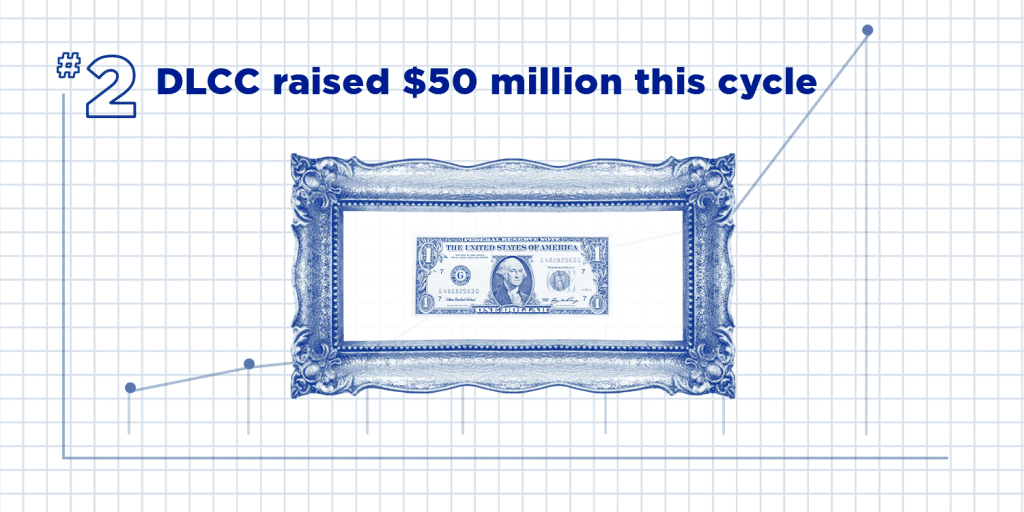
The Democratic Legislative Campaign Committee raised over $50 million this cycle, which is five times the amount raised in the entirety of the last redistricting cycle! This record-breaking sum is the most ever raised by the committee and marks a major shift in resources for Democrats at the state level. Thanks to record-breaking fundraising and energetic grassroots support, Democrats invested more than ever in state legislative races, allowing us to defend many of the gains we’ve won since 2016 and flip even more seats red to blue.
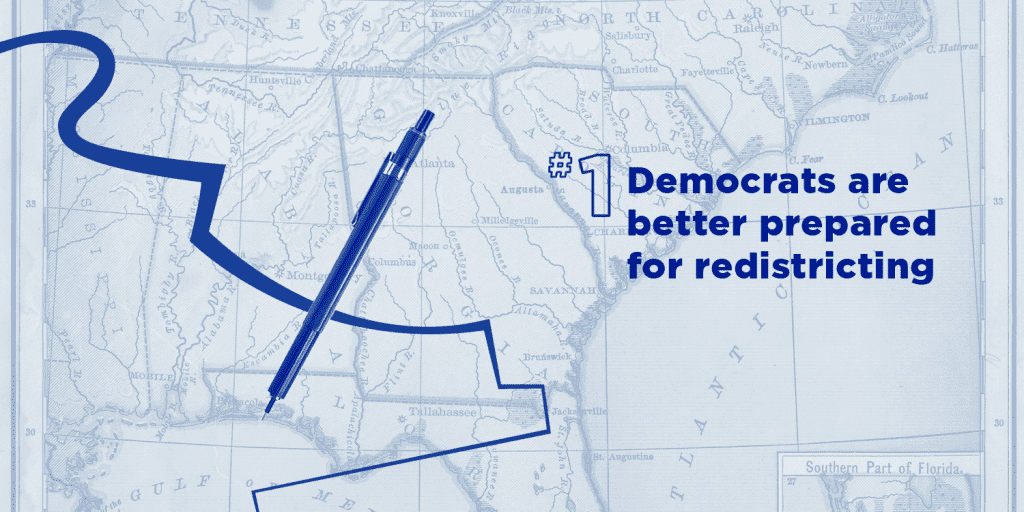
In recent years, Democrats have made major progress in the fight for fair maps. Our influence is much greater than it was a decade ago, and many voters will get unrigged districts for the first time in generations. Last time around, Republicans held power in New Mexico, Nevada, Maine, and Oregon, four states where Democrats will now have total control to draw fair maps. Michigan’s old districts were so undemocratic, they got thrown out by a federal court. But next year, an independent commission will draw the maps, giving Democrats our first real chance at winning the state House and Senate in decades. We’ll also have new independent commissions to draw fair maps in places like Colorado and Virginia. And because we broke the GOP supermajority in Pennsylvania, the Democratic governor can veto rigged maps. Democrats also blocked the GOP from getting supermajorities in Wisconsin and Louisiana, which will force Republicans to work with Democratic governors on redistricting and prevent them from ramming through partisan maps. As a result of Democratic successes, tens of millions of Americans, mostly people of color, won’t be disenfranchised by rigged maps engineered to marginalize their votes.

